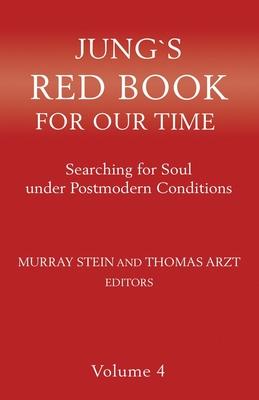The spiritual malaise regnant in today's disenchanted world presents a picture of "a polar night of icy darkness," as Max Weber wrote already a century ago. This collective dark night of the soul is driven by climate change-related disasters, rapid technological innovations, and opaque geostrategic realignments. In the wake of what policy analysts refer to as "Westlessness," the postmodern age is characterized by incessant distractions, urgent calls to responsibility, and in-humanly short deadlines, which result in a general state of exhaustion and burnout. The hovering sense of living in a time frame that is post-histoire induces states of confusion on a personal level as well as in the realm of politics. Totally missing is a grand narrative to guide humanity's vision.
Thinkers, scholars, and Jungian analysts are increasingly looking to C.G. Jung's monumental oeuvre, The Red Book, as a source for guidance to re-enchant the world and to find a new and deeper understanding of the homo religiosus. The essays in this series on Jung's Red Book for Our Time: Searching for Soul under Postmodern Conditions circle around this objective and offer countless points of entry into this inspiring work.
This is the fourth volume of a multi-volume series set up on a global and multicultural level and includes essays from the following distinguished Jungian analysts and scholars:
- Murray Stein and Thomas Arzt: Introduction
- Robert M. Mercurio: The Red Book and our Contemporary Crises: Active Imagination, Mass Migration and Climate Change
- Heike Weis Hyder: The Burning Urgency of Psychodynamic Discoveries in The Red Book for Psychiatry and Psychotherapy: A Key for Healing-Resonance of Soul, Love and Life
- Maria Helena R. Mandacar Guerra: Jung's Red Book as a Healing Symbol for Our Time
- Thomas Moore: A Book of Magic: Jung's Red Book and the Tradition of Natural Magic
- Bruce MacLennan: Liber Novus sed non Ultimus: Neoplatonic Theurgy for Our Time
- Gary Clark: Integrating the Archaic and the Modern: The Red Book, Visual Cognitive Modalities and the Neuroscience of Altered States of Consciousness
- John Merchant: The Red Book as Jung's Asclepiadean
- John Ryan Haule: Jung comes back to Himself
- Henning Weyerstrass: C.G. Jung and the Creative Unconscious
- Becca Tarnas: The Participatory Imagination
- Dale Kushner: In Extremis: Jung's Descent into the Language of the Self
- Karin Jironet: On the Divine and Eternal Solitude of the Star: Jung's Seven Sermons Mirrored to Sufi Mysticism
- Katie Givens Kime: "So Long As We Are Not Mystics" What the Personal Art of William James and C.G. Jung Give Us Now
- Christian Gaillard: The Red Book in Venice
- Kiley Q. Laughlin: The Red Book: A Premodern Graphic Novelty
- Mark Winborn: Liber Novus and the Metaphorical Psyche: Revisioning The Red Book
